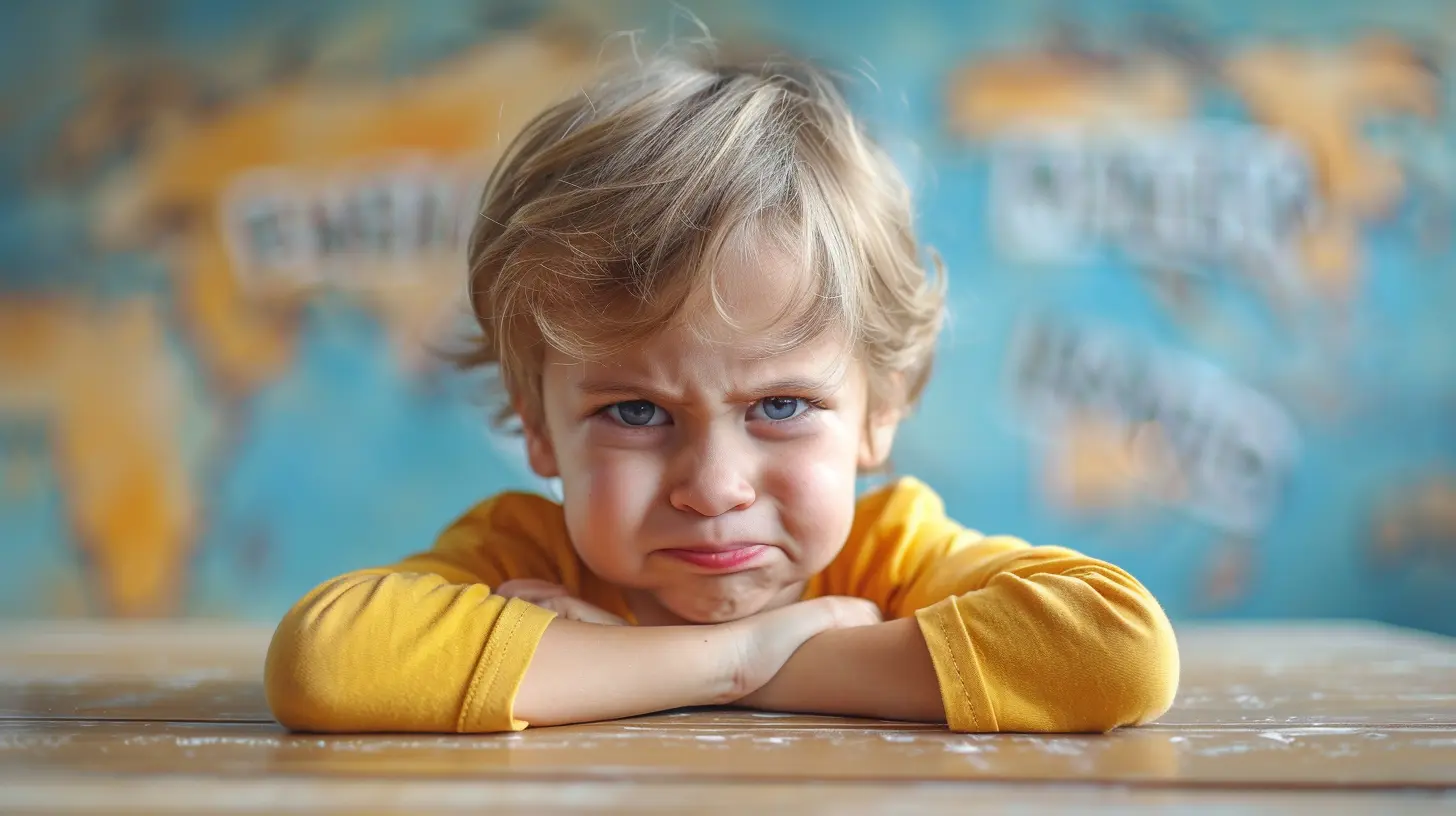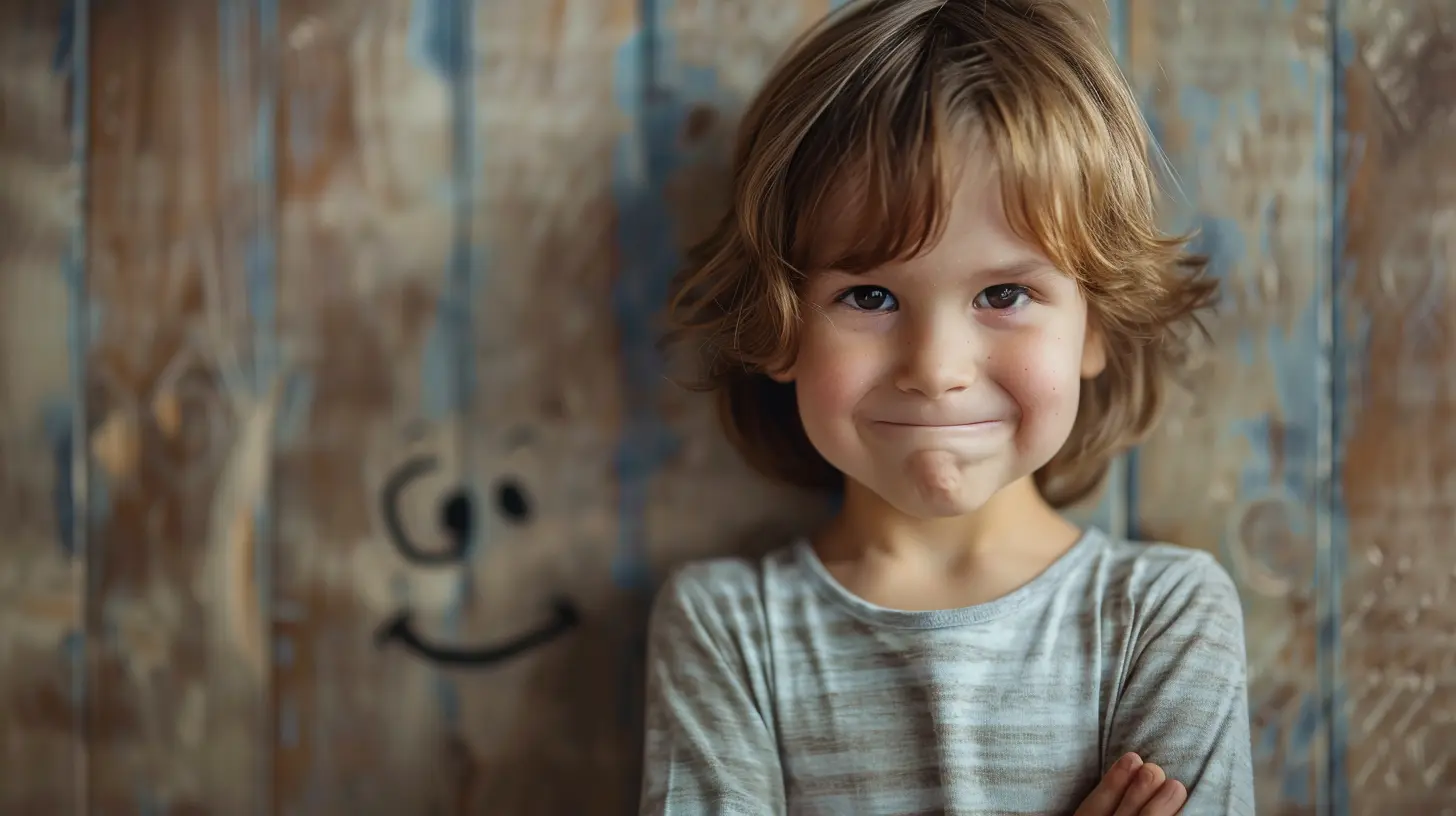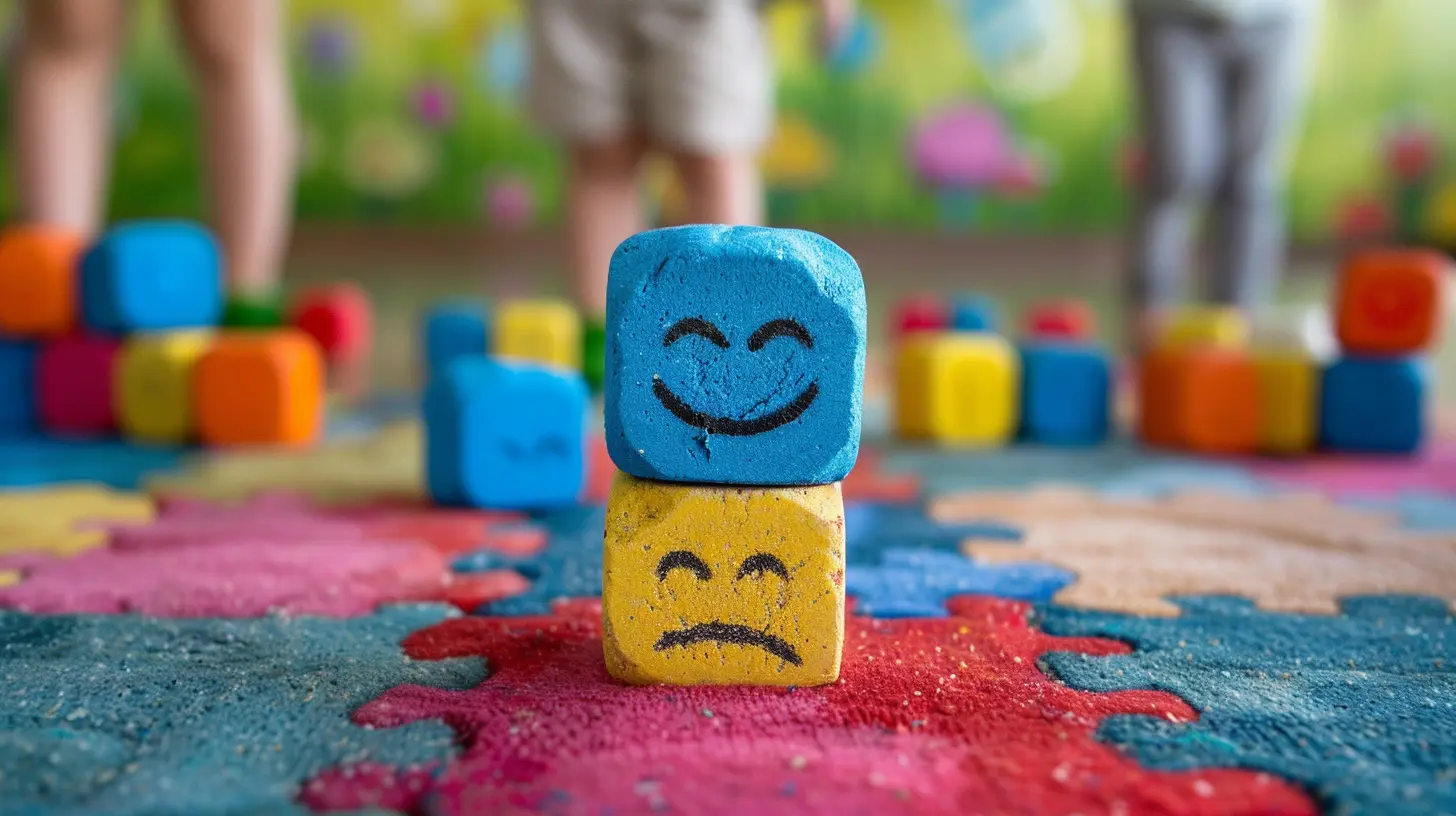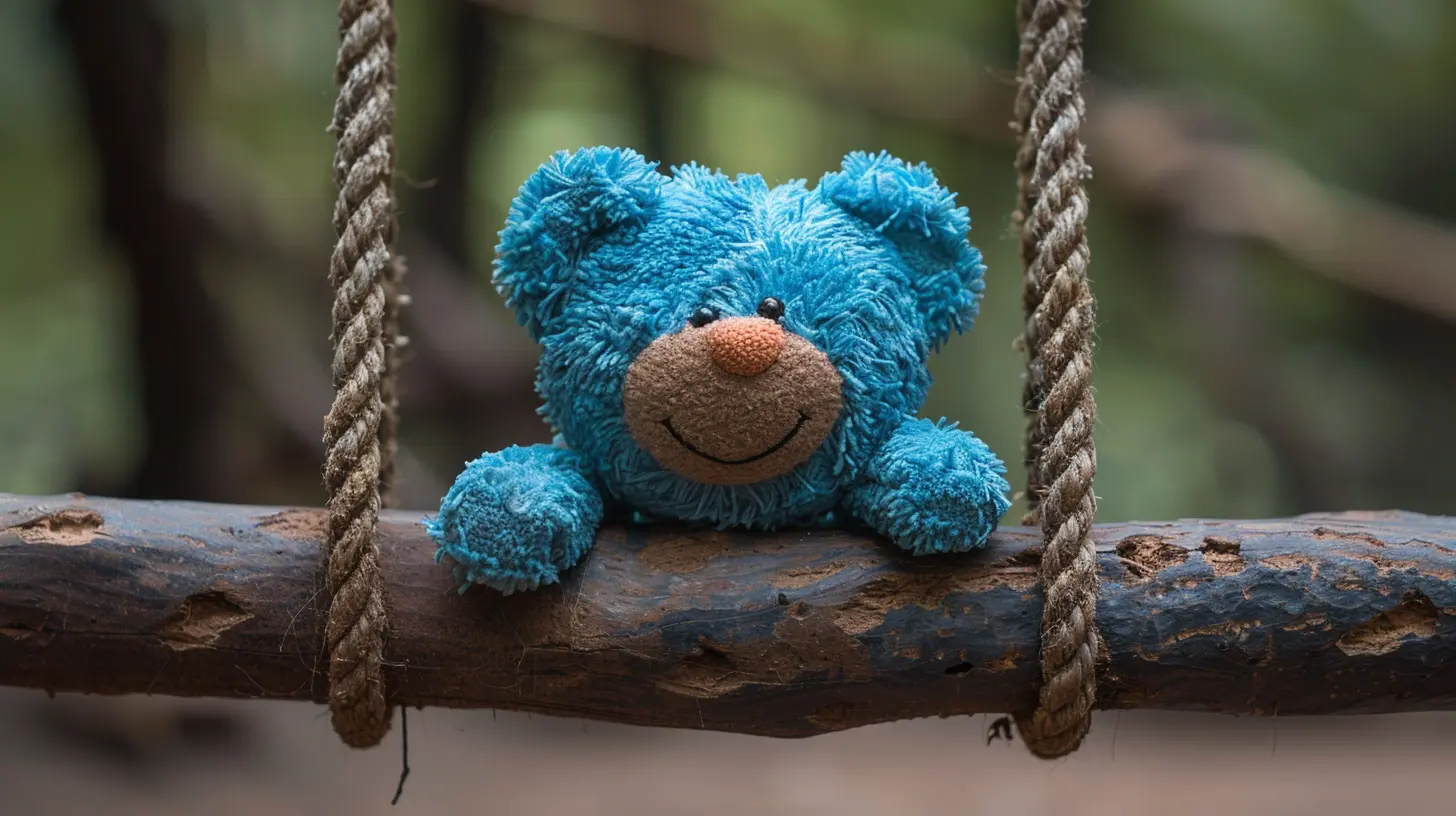Building Emotional Intelligence Through Positive Discipline
12 August 2025
Let’s be honest — parenting is hard.
From meltdowns in the cereal aisle to backtalk over bedtime, we’ve all been there. You want to raise kind, respectful, emotionally healthy kids… but sometimes, you just want a moment of peace without the chaos.
Here’s the good news: you can actually build your child’s emotional intelligence through everyday discipline. Yep — discipline doesn’t have to be harsh or shouty. In fact, the right kind of discipline can help kids become more self-aware, empathetic, and emotionally strong.
Sounds pretty great, right? Let’s break down how positive discipline isn’t just a parenting strategy — it’s a powerhouse for growing emotionally intelligent humans.
What Is Emotional Intelligence (And Why Should Parents Care)?
Before we dive into the “how,” let’s hit pause for a second.What exactly is emotional intelligence? Simply put, it’s the ability to recognize, understand, manage, and express our emotions — while also being aware of and respectful toward the feelings of others.
Now, think about how useful that is in life. Whether it’s handling frustration at work, navigating relationships, or coping with failure, emotional intelligence (or EQ) is a major key to success — arguably even more than IQ.
And guess what? EQ isn’t something we’re just born with. It’s something we build. That’s where you come in.
Positive Discipline: Not Soft, Just Smart
Let’s clear something up: positive discipline doesn’t mean letting your kids run wild.It’s not about being a pushover or avoiding consequences. Instead, it’s about teaching rather than punishing. It’s parenting with connection, empathy, and firm boundaries — all while helping your child learn from their mistakes rather than fear them.
Think of it like coaching, not controlling.
Instead of yelling “Because I said so!” when a rule gets broken, you’re choosing connection over control. You’re guiding, not punishing. And that shift makes all the difference in how your child learns to handle their own emotions — and respect others’.
Why Positive Discipline Builds Emotional Intelligence
You might be wondering, “Okay, but how does this actually help my child become more emotionally intelligent?”Let’s walk through it.
1. It Creates a Safe Emotional Space
Imagine trying to learn something new while someone’s shouting at you. Doesn’t sound too effective, right?When discipline is harsh or punitive, kids shut down. Their brains go into defense mode. But when you lead with empathy and calm, you create a space where they feel safe enough to reflect and grow.
A child who feels emotionally safe is far more likely to:
- Admit when they’ve messed up
- Understand the impact of their actions
- Take responsibility without feeling shame
That’s real emotional learning.
2. It Teaches Self-Regulation in Real Time
Let’s say your 4-year-old just threw their Legos across the room because they lost a game.Now, you could yell at them and send them to their room. But what do they really learn?
Instead, positive discipline might sound like:
"I see you're really frustrated because you lost. It's okay to feel mad, but it’s not okay to throw things. Let’s take some deep breaths and talk about what happened."
Boom. In that one moment, your child:
- Named their emotion (frustration)
- Saw that it’s valid to feel upset
- Learned a more appropriate way to express it
Every one of those steps builds emotional intelligence.
3. It Strengthens the Parent-Child Connection
Emotional intelligence thrives in connection, not correction.When kids feel close to their parents — when they know you get them — they’re more open to learning from you. They trust you. And that trust is the foundation for every valuable EQ lesson you’ll ever teach.
Positive discipline helps keep that connection strong, even after conflict. It tells your child: “I love you enough to hold you accountable… and I love you no matter what.”
Core Pillars of Positive Discipline That Boost EQ
So what does positive discipline actually look like day to day? Here are some of the core strategies that go hand-in-hand with emotional development.1. Validate Their Emotions (Even When You Don’t Like the Behavior)
This is big. Kids need to know that their feelings aren’t “bad” — even if their actions crossed the line.You can say things like:
- “It’s okay to be angry. I feel angry sometimes, too.”
- “You’re disappointed because you can’t have another cookie. That makes sense.”
Then follow it with a boundary:
- “But it’s not okay to hit when you're mad.”
- “Even though you’re upset, we’re still not having more sweets right now.”
Acknowledging their emotions first helps them feel heard — and far less likely to spiral into meltdown mode.
2. Use Natural and Logical Consequences
Forget arbitrary punishments. Kids learn best from consequences that make sense.If your child refuses to wear gloves on a cold day after you’ve warned them, let them experience the chill (safely, of course). That’s a natural consequence.
If they draw on the walls, they help you clean it up. That’s a logical consequence.
It’s not about guilt — it’s about making the connection between choice and outcome. That’s a lifelong EQ skill.
3. Model Emotional Intelligence Yourself
Let’s be real: kids are tiny mirrors. They’re watching how you handle stress, anger, and conflict — and they learn from it.So when you’re feeling overwhelmed, say it (in an age-appropriate way):
- “I’m feeling really frustrated right now, so I’m going to take a few deep breaths before we keep talking.”
You’re not just calming yourself — you’re showing your child what healthy emotional regulation looks like.
And don’t be afraid to admit when you mess up. An apology teaches humility, responsibility, and empathy — all EQ goldmines.
Real-Life Positive Discipline Examples
Need some scripts to make this all feel doable? Here are a few positive discipline moments in action:Scenario 1: Your child refuses to share a toy.
Instead of: “You’re being selfish! Give it back right now!”
Try:
"I can see you really want to play with that toy. It’s hard to wait your turn, huh? Let's set a timer so you both get a turn."
Scenario 2: Your teen slams the door after an argument.
Instead of: “Don’t you ever slam that door again!”
Try:
"I know you're upset, but slamming the door is not okay. Let’s both take a moment, and we’ll talk when we’re calmer."
Scenario 3: Your toddler throws food at dinner.
Instead of: “That’s it, no more dinner for you!”
Try:
"It looks like you're done eating since food is being thrown. Let’s clean up together and talk about why that’s not okay.”
These small shifts change the power dynamic — from controlling to coaching. And that’s where emotional intelligence starts to grow.
How To Stay Consistent Without Losing Your Mind
Let’s be real: staying calm in the heat of the moment is tough. No one’s perfect. So how do you stay on track when your patience is running on fumes?Here are a few tricks:
- Pause before reacting. Breathe. Walk away if you need 30 seconds to cool off.
- Use a mantra. Something like “Connection before correction” or “Respond, don’t react.”
- Remind yourself of the long game. Discipline isn’t about this one moment — it’s about who your child is becoming.
And hey — if you lose it and yell? Apologize, repair, and move forward. That’s modeling EQ, too.
The Payoff: What Happens When You Raise an Emotionally Intelligent Child
So what’s at the end of this parenting rainbow?Here’s what happens when you use positive discipline to nurture emotional intelligence:
- Your child learns to pause before reacting.
- They become better at handling disappointment and frustration.
- They grow into adults who communicate, empathize, and thrive in relationships.
- And they’re more likely to extend that same emotional intelligence to their future children someday.
It’s the kind of generational gift that keeps on giving.
Final Thoughts: Discipline That Connects, Not Controls
Parenting isn’t about perfect kids or perfect parents. It’s about connection, growth, and raising humans who know how to navigate emotions — theirs and others’.Positive discipline isn’t a quick fix. It’s a mindset shift. But it’s 100% worth the effort.
When you choose connection over correction, empathy over punishment, and growth over guilt, you’re not just managing behavior — you’re shaping character.
And that? That’s powerful.
all images in this post were generated using AI tools
Category:
Positive DisciplineAuthor:

Karen Hurst
Discussion
rate this article
2 comments
Patience Maddox
Empowering our children with emotional intelligence through positive discipline nurtures resilience and empathy. Let's embrace this journey together, fostering strong connections and guiding them towards a brighter future!
November 30, 2025 at 5:35 AM

Karen Hurst
Thank you for your insightful comment! I completely agree—empowering our children with emotional intelligence is essential for their growth and future success. Let's continue to support one another on this important journey!
Flint Matthews
This article offers such intriguing insights! I'm curious about how specific techniques of positive discipline can effectively nurture emotional intelligence in kids. Are there age-specific strategies that work best for different developmental stages? Looking forward to exploring more!
August 17, 2025 at 4:15 PM

Karen Hurst
Thank you for your enthusiasm! Yes, age-specific strategies can greatly enhance emotional intelligence. For younger children, techniques like labeling emotions and modeling empathy work well. As they grow, fostering problem-solving skills and encouraging self-reflection become more effective. I look forward to diving deeper into these strategies!


